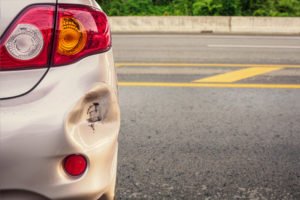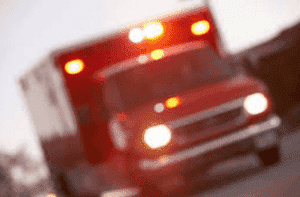
Miami drivers must carry minimum insurance coverage of $10,000 in Personal Injury Protection (PIP) and $10,000 in Property Damage Liability (PDL) as required by Florida’s no-fault insurance laws.
However, these minimum amounts are often inadequate for serious accidents, making additional coverage like bodily injury liability and uninsured motorist protection important considerations for comprehensive financial protection.
An expeienced Miami car accident lawyer can explain how insurance coverage affects your ability to recover compensation after an accident and advise whether your current coverage provides adequate protection.
Florida’s Mandatory Minimum Insurance Coverage
Personal Injury Protection (PIP) coverage of at least $10,000 is mandatory for all Florida drivers. This coverage pays for medical expenses, lost wages, and essential services regardless of who caused the accident. PIP benefits typically cover 80% of medical costs and 60% of lost wages up to the policy limits.
Property Damage Liability (PDL) coverage of at least $10,000 is also required and pays for damage you cause to other people’s property in an accident. This includes other vehicles, buildings, fences, signs, and any other property damaged in accidents where you’re at fault.
These minimum amounts represent the absolute legal requirements, but they’re often inadequate for serious accidents involving significant injuries or expensive vehicle damage. Many insurance experts recommend much higher coverage levels to provide meaningful financial protection.
Understanding Personal Injury Protection (PIP) Coverage
Personal Injury Protection is the cornerstone of Florida’s no-fault insurance system, designed to provide immediate medical coverage and wage replacement benefits regardless of fault determination. Understanding how PIP works helps drivers appreciate both its benefits and limitations in accident situations.
More About PIP Coverage
PIP coverage typically pays 80% of reasonable medical expenses related to accident injuries, up to the policy limits. This includes emergency room treatment, hospital care, doctor visits, diagnostic tests, prescription medications, and rehabilitation services. The remaining 20% of medical expenses becomes your responsibility.
Lost wage benefits under PIP coverage usually pay 60% of your gross income, up to the policy limits, when accident injuries prevent you from working. These benefits help replace income during recovery but may not fully cover your financial needs, especially if you have a higher income or extensive time away from work.
PIP benefits have specific time limits and restrictions that can affect coverage. Benefits typically must be used within three years of the accident, and certain types of treatment may require pre-authorization or have specific limitations on coverage amounts.
Property Damage Liability Coverage Explained
Property Damage Liability coverage protects you when you’re at fault in an accident that damages other people’s property. This coverage is crucial because property damage costs can quickly exceed the minimum $10,000 requirement, especially in accidents involving expensive vehicles or multiple cars.
The coverage pays for repairs or replacement of other vehicles damaged in accidents you cause, up to your policy limits. It also covers damage to buildings, fences, signs, utility poles, and other structures that might be damaged in an accident. However, it does not cover damage to your vehicle.
Miami’s traffic density and prevalence of expensive vehicles make the minimum $10,000 property damage coverage particularly inadequate. A single accident involving a luxury vehicle could result in damage claims far exceeding this minimum amount, leaving you personally responsible for the difference.
Additional Coverage Options to Consider
Drivers in Miami often purchase additional insurance coverage beyond the state minimums to provide better financial protection. Understanding these options helps drivers make informed decisions about their coverage needs and risk tolerance.
Additional Options
Bodily Injury Liability coverage, while not required in Florida, protects you when you’re at fault in accidents that seriously injure others. This coverage pays for medical expenses, lost wages, pain and suffering, and other damages you’re legally responsible for causing to others.
Uninsured Motorist coverage protects you when you’re injured by drivers who don’t carry insurance or don’t have enough coverage to pay for your damages. Given Florida’s high rate of uninsured drivers, this coverage provides valuable protection against inadequately insured motorists.
Collision coverage pays for damage to your vehicle regardless of fault, while Comprehensive coverage protects against non-collision damage like theft, vandalism, or weather damage. These coverages are particularly important for drivers with newer or valuable vehicles.
Medical Payments coverage provides additional medical expense coverage beyond PIP limits, helping bridge the gap when medical costs exceed your PIP benefits.
Consequences of Driving Without Required Insurance
Your driver’s license and vehicle registration will be suspended if you’re caught driving without required insurance. Reinstatement requires paying fees, obtaining proper insurance, and potentially needing to file an SR-22 form with the state proving you have coverage. This can massively increase your insurance premiums.
You’ll face fines and fees that can total several hundred dollars, plus court costs if you’re cited for driving without insurance. These penalties increase for repeat offenses and can result in longer license suspensions.
Without insurance, you’re personally responsible for all damages you cause in accidents, which can result in significant financial liability. You may also be unable to register vehicles or obtain a driver’s license until you demonstrate financial responsibility.
Find Out if Miami’s Minimum Insurance Requirements are Enough
Making informed decisions about insurance coverage requires balancing legal requirements, financial protection needs, and premium costs. Consider your assets and income when selecting coverage limits, as these determine what you could lose in a lawsuit. Drivers with significant assets typically need higher liability limits to protect their wealth from legal judgments.
Also, consider your health insurance coverage when selecting PIP limits, as good health insurance might reduce the need for higher PIP coverage. In contrast, poor or no health insurance makes higher PIP limits more important.
Call Anidjar & Levine today for a free consultation if you’ve been injured in a car accident and have questions about insurance coverage or your ability to recover compensation. We’ll review your case, explain how insurance coverage affects your claim, and fight to secure maximum compensation from all available sources.










